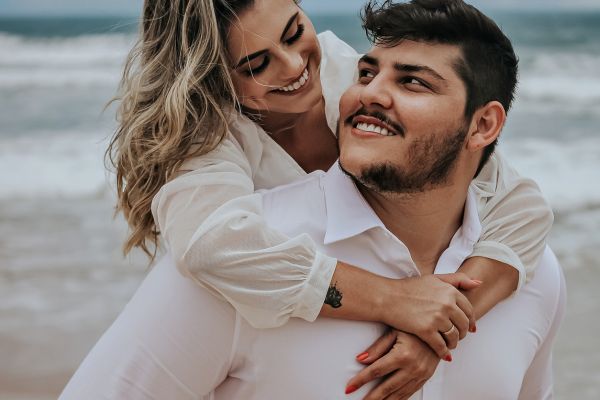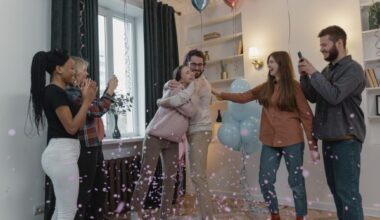Love is often described as finding your other half, and sometimes, that might extend to looking like each other too. Have you ever noticed how certain couples seem to share an uncanny resemblance? It’s a phenomenon that has intrigued psychologists, geneticists, and curious onlookers for years. In this article, we dive deep into the fascinating world of couples who look alike, exploring the intricate blend of science, psychology, and societal influences that contribute to this intriguing phenomenon.
Couples Who Look Alike
From casual observers to researchers, many have pondered the reasons behind couples’ physical similarities. The answer, it turns out, is a multi-faceted one that stems from various factors.
Psychological Explanations
1. Shared Interests And Lifestyle
A common thread in couples who resemble each other lies in their shared interests and lifestyle choices. Spending time together doing similar activities can lead to the adoption of similar mannerisms, facial expressions, and even fashion choices.
2. Imprinting And Familiarity
Psychologically, we’re drawn to the familiar. Couples who spend a considerable amount of time together create a shared sense of familiarity, leading them to adopt similar facial expressions and body language, resulting in the perception of looking alike.
3. Genetics And Physical Similarities
While not as straightforward as having the same eye color, genetics play a subtle role. Certain genetic factors influence facial structure and features. Couples who share similar ancestry might unknowingly share common genetic traits that lead to facial resemblances.
4. Cultural Influences
Culture shapes our perception of attractiveness and beauty standards. Couples from the same cultural background often adhere to similar ideals of beauty, leading to shared grooming habits and wardrobe choices.
Media And Celebrity Impact
Media bombards us with images of celebrity couples who look alike, reinforcing the notion that resembling your partner is desirable. This subconscious influence can lead to couples unconsciously imitating the famous duos they see.
Social Perception And Assumptions
We’re wired to make assumptions based on what we see. Couples who share similar looks may be perceived as more compatible or harmonious, reinforcing their visual similarities.
The Role Of Dopamine And Attraction
Dopamine, the feel-good neurotransmitter associated with pleasure and reward, plays a role in attraction. Couples who experience mutual attraction may exhibit similar expressions of joy and excitement, contributing to their visual similarity.
Unveiling The Myth: Confirmation Bias
Confirmation bias plays a part in our perception of couples who look alike. We tend to notice similarities and overlook differences, confirming our preconceived notions.
Online Dating And App Trends
The digital age has reshaped how we form relationships. Online dating apps often match people based on shared interests and values, inadvertently leading to a higher chance of resembling one another.
The Significance Of Personal Identity
The desire to maintain individuality while sharing a resemblance challenges couples to navigate questions of identity. How do they balance being themselves while looking like each other?
Challenges And Benefits Of Looking Alike
1. Identity Boundaries
Couples must establish healthy boundaries to ensure their individual identities are not overshadowed by their shared appearance.
2. Social Commentary And Critique
Society’s perceptions can bring both praise and criticism. Couples who embrace their resemblance might inspire others, while also facing societal pressures.
3. Relationship Dynamics
Looking alike can create a sense of closeness, but couples must also address potential downsides, such as co-dependency.
4. Celebrating Individuality Within Similarity
Embracing one’s unique traits while looking alike requires self-awareness and a strong sense of self. Celebrating individuality fosters a healthy relationship dynamic.
5. Embracing Diversity In Relationships
While some couples may naturally resemble each other, diversity in relationships should be celebrated. Relationships thrive on the exchange of different perspectives and experiences.
Conclusion
Couples who look alike embody a fascinating blend of science, psychology, and societal influences. From shared interests to genetic predispositions, there’s more to their resemblance than meets the eye. As we delve into the complexities of this phenomenon, we’re reminded that relationships flourish when authenticity and individuality are celebrated.
FAQs about Couples Who Look Alike
1. Is there scientific evidence that couples who look alike have stronger relationships?
There’s no conclusive evidence that resemblance directly correlates with relationship strength. It’s more about shared experiences and compatibility.
2. Can couples consciously change their appearance to look more alike?
While some couples might unconsciously adopt similar styles, consciously changing appearance solely for resemblance might not be healthy for personal identity.
3. What impact does social media have on the perception of couple look-alikes?
Social media amplifies the exposure to similar-looking couples, reinforcing the idea that resemblance is desirable and common.
4. Are there any downsides to couples looking alike?
Couples might face challenges in maintaining their individuality and could be prone to assumptions and stereotypes from others.
5. How can couples balance looking alike with maintaining their uniqueness?
Open communication, shared values, and embracing personal interests can help couples strike a balance between similarity and individuality.








